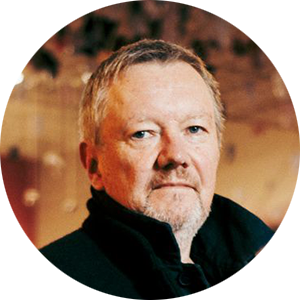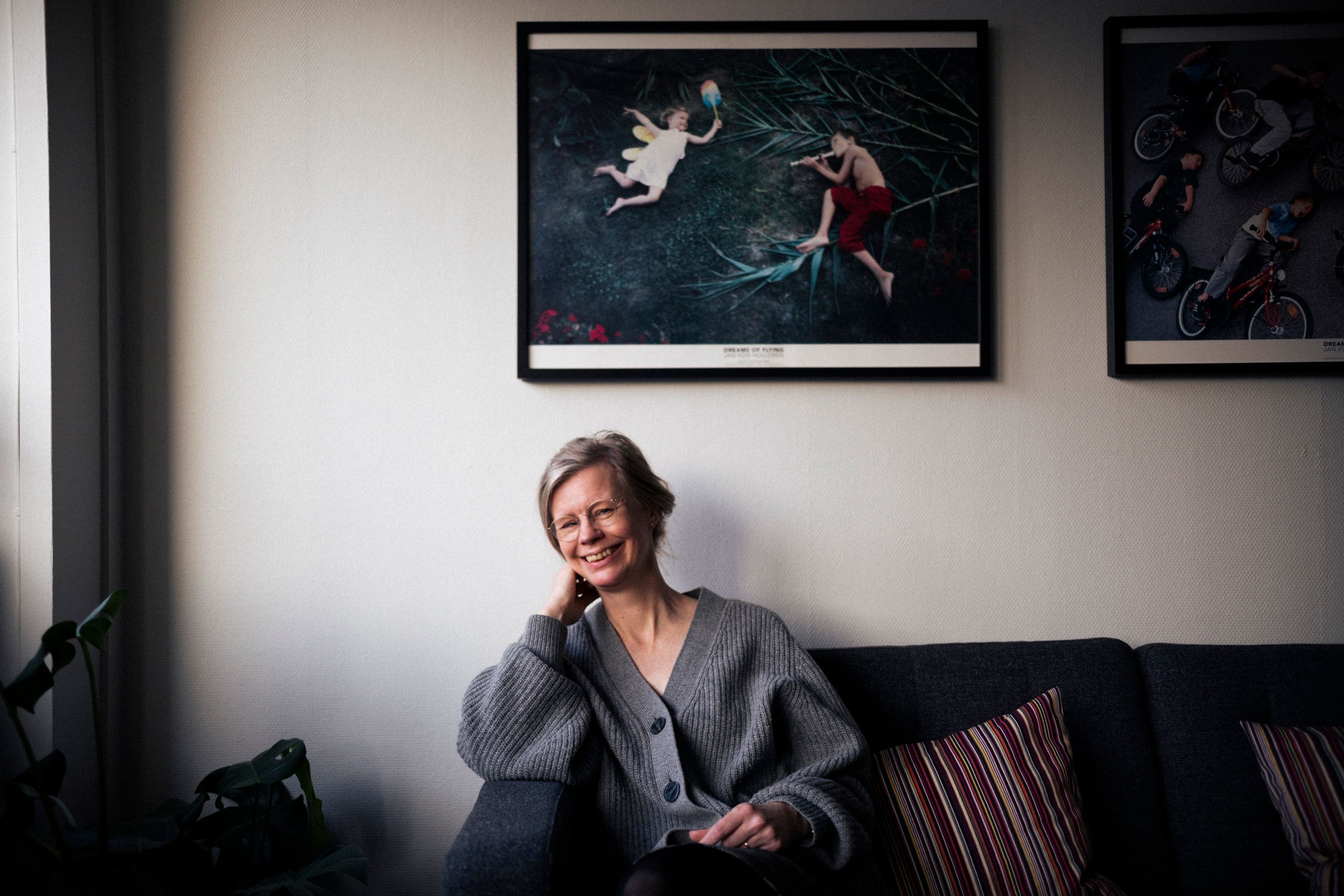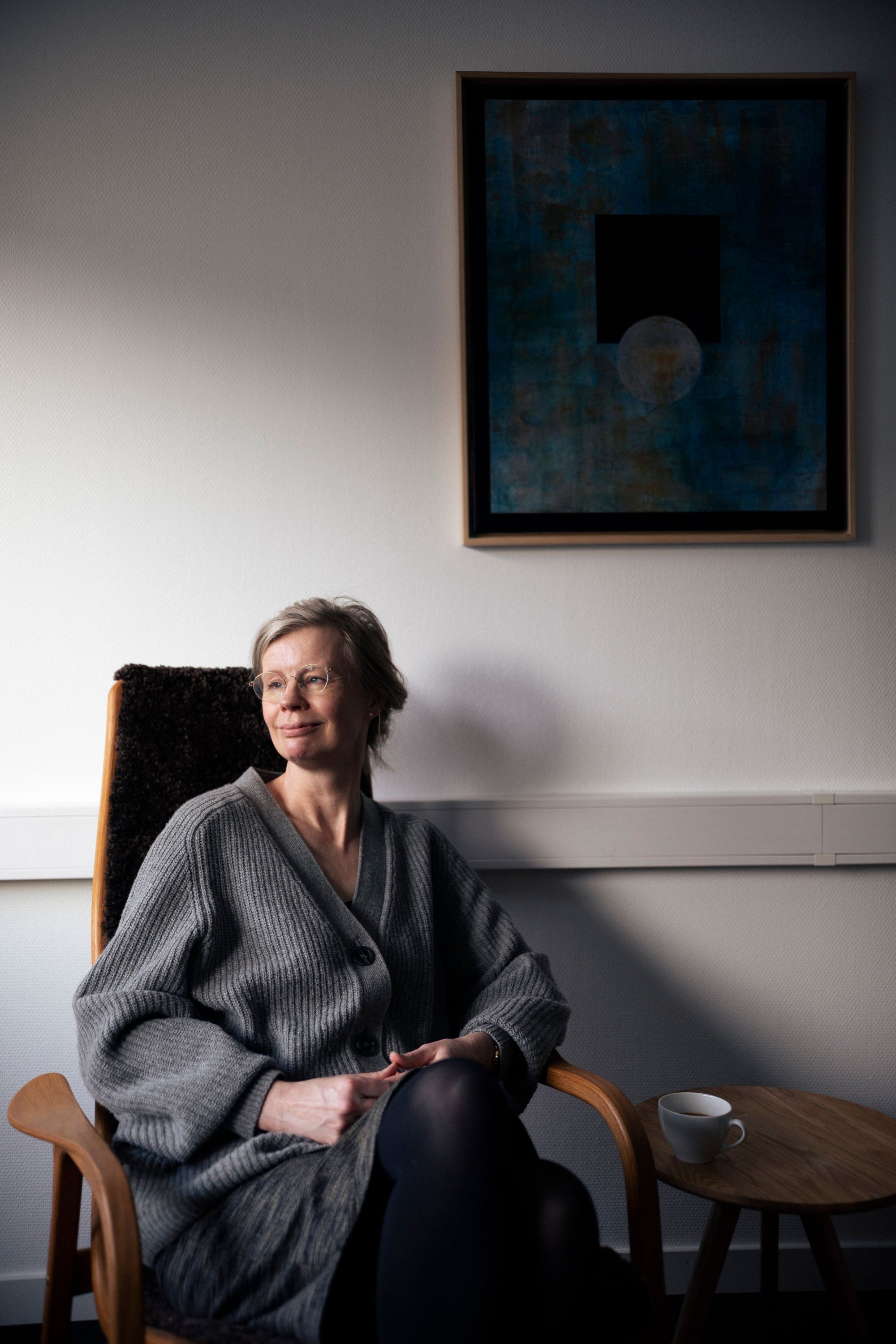- WE ARE INHERENTLY PROGRAMMED FOR DIALOGUE
Hedvig Montgomery believes that our ability to communicate improves with each new generation. However, there's one modern phrase that particularly irks the psychologist.
– Judging others is so effortless, and it is something we humans love to do.
Hedvig Montgomery has been one of Norway's most prominent and esteemed psychologists for several years. Her book series, "Parental Magic" (Foreldremagi), which traces children's development from infancy to 19 years of age, has achieved international acclaim, reaching readers in 23 countries.
In addition, she is a columnist and podcaster for Aftenposten, Norway’s biggest newspaper, and she is part owner of the practice Montgomery AS.
The office of Montgomery AS is located on the seventh floor in Bogstadveien, one of Oslo’s high streets. Up here, high above busy shoppers on the city’s westend, people come to clear up their thoughts and feelings - either with Hedvig herself, or one of her eight colleagues.
However, where she often gets the most direct and vulnerable questions, is on Instagram.
- Yesterday I received a question from a mother with two small children, a two-year-old and a six-month-old baby. She stopped breastfeeding the youngest when he was four months old. It had all become too much for her. Now she wondered if she had hurt her little boy. And this question grew so big inside her: "Have I hurt my child?", says Hedvig.
- When she writes to me - a woman she has never met - and asks "have I hurt my child?", it is because she needs to be able to say to herself "it is ok, it will turn out fine". Living with that doubt – did I hurt someone, did I make a mistake, could I have done better? - creates an unrest that is simply incredibly difficult to live with, and painful to live in.
HEDVIG MONTGOMERY'S TOP FIVE TIPS FOR A BETTER DIALOGUE:
1. Choose the right time and place
There must be time and space for dialogue, and I'm not the only one who decides. It must suit you too. And I promise it's never appropriate when one or both of you are upset. If you are going to have a dialogue, both of you must have the emotional capacity to meet.
2. Calm down beforehand
If someone is angry, scared or sad, you won't have a deep conversation. This applies regardless of age. If you have a jealous girlfriend, you must first get the situation under control. If you have a child who is afraid of being told off, you must first make the child feel that everything is ok, then you can talk.
3. Concentrate!
Talking together is not something you do on autopilot or according to a recipe. It's something you want to do, and that you put effort into. The more important the conversation is, the more you must turn off the noise that prevents you from concentrating properly.
4. Meet each other with goodwill
If you take away goodwill from the dialogue, there is no dialogue. Then it's a war.
5. Try to understand
Every single person, from the smallest newborn child to the seniors at the nursing home in the last stages of life, needs to feel understood. To feel that I it is okay to be me, with the feelings I have. Every time we manage to give each other that experience, is a small contribution to making the world a better place.
THE NEED FOR FORGIVENESS
Av the eight principles of dialogue Of that the Nobel Peace Center has identified as the most important, there are two that stand out for Hedvig in her work as a couples and family therapist.
- For those who are struggling, only two elements are truly essential: someone who listens attentively, and forgiveness and reconciliation.
- As people, we depend on being heard and understood. In conflicts, a lack of forgiveness and reconciliation is what stops a happy life going forward - at the national level and at the group level, but also at the individual level. We need to somehow embrace what has been to be able to live with ourselves, she says.
The ability and need for dialogue is not something we learn - it is hard-wired in human behaviour from the start, says Hedvig.
- The small child is born with the ability for dialogue. After the initial weeks where it is only inside itself, it emerges. After 7-8 weeks, the gaze is suddenly fixed, there is a tiny smile, and then there is a big smile. From there onwards, the child is programmed to take turns: give a response, wait for a response, ask questions with its entire body, and wait for an answer. It is quite fascinating to see how dialogue is something that humans have in them.
Feeling understood or validated is what keeps you “on”. When experiencing the lack of these, you turn “off”, explains Hedvig.
- Anyone who has been on an awkward date can recognize it - when you don't get any response on what you contribute, you stop being interested in the person you're talking to. You turn quiet, also inside, and then you go home and think "what really happened now"?
To see eachother with love
At the heart of a family constellation, we often find a couple relationship. The huge difference between being in a good relationship and a bad one is obvious to anyone who has tried both. Even a good partnership will have to brace itself for tough periods and the stress of everyday life.
- It sounds a bit clichéd, but it's really true: Seeing each other with love is a prerequisite. If you are to truly love someone, you must look for what shines in them. You're bound to think that this person is a bit annoying at times. In those moments, you must look for the qualities in your partner that makes you want to be together, says Hedvig.
- You can't scare someone into changing. You can't threaten someone into changing. You cannot persuade someone to change. You can only do it through understanding and providing a safe space for that person. Then you will get change.
Couples who stay together gradually grow more alike, while continuing to be curious about each other. But if you really want someone to change, love and understanding is the way to go, says the psychologist.
Living life in a whirlwind
That is not to say that every couple can - or should - stay together. Hedvig Montgomery believes that there are many destructive relationships, and that we should not stay in a relationship that is not good for us.
But there are many more good couples than we think, and more good relationships than we see in the statistics today.
Hedvig believes that we often rush into recognizing and labeling love prematurely. She suggests that it typically takes around seven months to truly understand if you are falling in love, but discovering that you have a lasting and profound love for someone can take several years. This deeper love involves uncovering and accepting the intricacies of a person beyond what is apparent on the surface, delving into their true essence "backstage" rather than merely observing the front-stage performance.
-Sometimes I think we've seen too many Hollywood movies. He meets her, there's a bit of back and forth, then they sleep with each other and eat Chinese food in bed, and then they live happily ever after. But in reality there is so much uncertainty. It takes a long time to accept the other to the extent that you have something you can build something lasting on.
Another thing we tend to forget is how much circumstance matters in a relationship.
Having small children, for example, is like living life in a whirlwind. It is extremely intense. There are always things you should have done, things you should have thought about, things you should have fixed. You can't take your eyes off a one-two-year-old at all, because they have no risk assessment skills. You can't go to the bathroom alone. You must be always “on”. Everyday is a marathon.
It is easy to think that it will always be like this. But it won't.
"Everyone who is struggling only needs two things. One is someone who listens, and the other is forgiveness and reconciliation. "
From decorative objects to leading roles
It's not just children's personal development that undergoes phases; society's perspective on children and childhood, as well as our parenting practices, also evolve over time.
n the 1950s and 1960s, children were often expected to be seen but not heard, with mothers typically staying at home with their children, and "inappropriate" feelings could be dismissed. Hedvig Montgomery's formative years, on the other hand, were during the 1970s, when children started to be viewed as 'small independent individuals' who were best left undisturbed to pursue their own interests.
- There is an English expression called rugrats, i.e. a baby crawling on the rug. That's where we were meant to be. During that time, there existed a somewhat romantic and tranquil idea of how children occupied themselves when they had the freedom to explore independently.
Nowadays, we understand that situations where children are left to fend for themselves don't always lead to harmony. The laissez-faire approach had its merits, but it also undeniably left many children behind and led to instances of street justice.
Around 2010, there was a shift towards a generation of children who increasingly required constant attention, praise, and support from their cheerleading parents, which became somewhat of a societal norm. This, according to Hedvig, places children in a unique predicament.
- Children aren't meant to be the main characters; they are meant to be part of a family, not the sole stars on a stage. Allowing children to take on the role of the sole protagonists goes against their natural inclinations. What they truly need is a sense of belonging, rather than being constantly in the spotlight, which can become overwhelmingly exhausting.
Nevertheless, she is optimistic that things are heading in the right direction. Through each generation's trial and error, as a society, we are gradually improving the way we communicate with and raise our children.
- We have understood a concept that is incredibly important, namely that listening to children is important in matters that concern them. We have gone from thinking that children are undeveloped, second-class citizens - even in my childhood, if an adult came into the shop, we had to let the adult go in front of us in the line, because the adult probably was in a rush to be somewhere else – to children now being considered as equals to be treated with respect.
This is how things are
Back to the mum who sent Hedvig the blunt message on Instagram. We have to endure a lot of pointing fingers and judgment on our way through life - whether it comes from ourselves or others. As Hedvig herself puts it:
- There are so few places to go to receive forgiveness.
The path to reconciliation goes through realizing that this is how it is. And every time someone says "it shouldn't be like that", they have skipped the most important point, namely: This is how it is right now. From here we can move on.
- The everyday expression that upsets me the most nowadays is: “It shouldn't be like that”.
We constantly see politicians and decision makers pointing out things they consider wrong in today’s society, and say “it shouldn't be like that”. It's might be a hang-up, but it makes me itch inside.
Hedvig Montgomery rather turns the phrase on its head.
- In order for us to be able to do something with anything, we must first realize that this is how it is.

Gina Gylver
Gina Gylver serves as the leader of Nature and Youth – Young Friends of the Earth (NU). In her activism, dialogue stands out as one of her most fundamental and frequently employed tools.

Kjetil Trædal Thorsen
Kjetil Trædal Thorsen, the founder of Snøhetta, spent nearly a year sipping lemon cordial in an Egyptian waiting room, an experience that imparted a valuable lesson about the art of dialogue.

Deeyah Khan
The filmmaker Deeyah Khan has portrayed right-wing extremists, violent spouses, abortion opponents and jihadists. According to herself, the key to her work is curiosity.
Learn more about dialogue
Go to our dialogue ressources, find our toolbox for dialogue and our interactive dialogue film.


